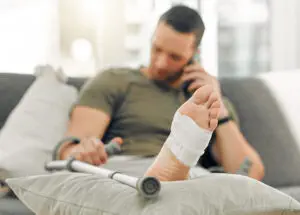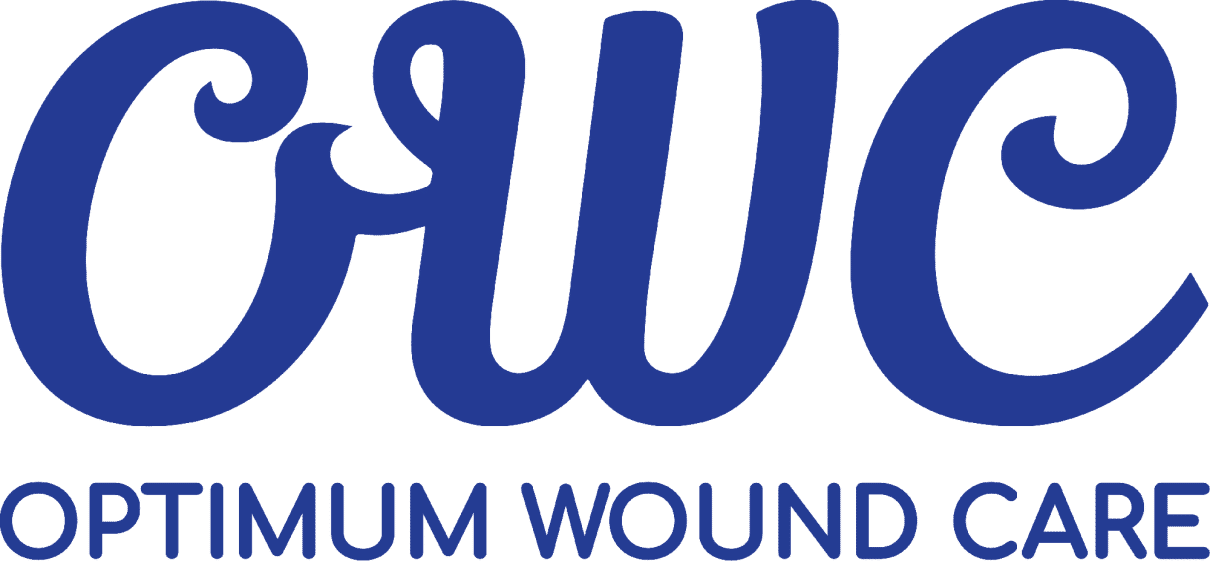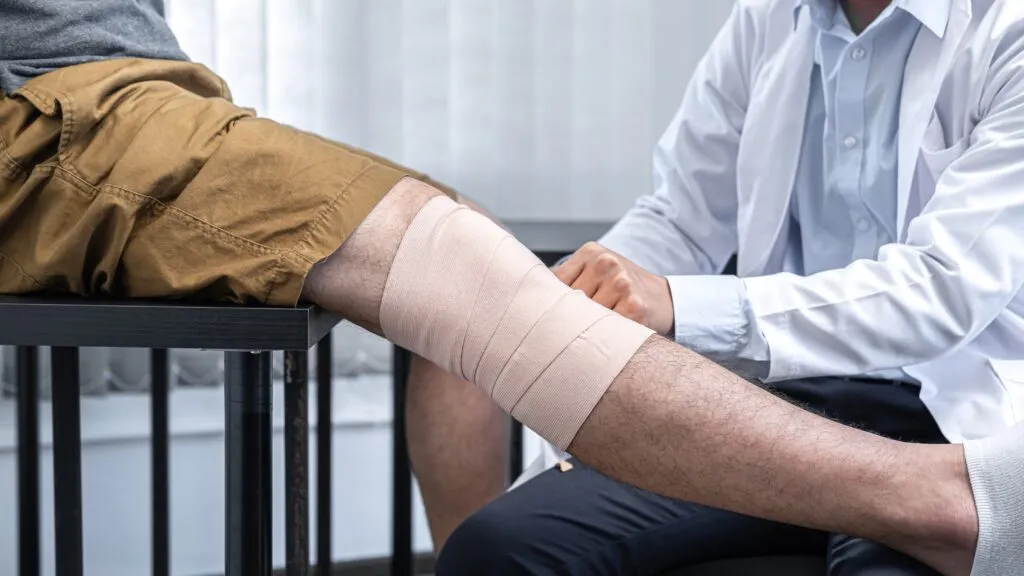When to Seek Professional Wound Care Treatment
Some wounds just don’t heal on their own. You wait. You apply cream. You change the bandage. Still sore. Still red. Still there.
That’s not normal. And it doesn’t mean you’re doing anything wrong.
Older adults especially face a tougher healing journey. Thinner skin. Slower circulation. More health conditions. All that adds up.
You might think, “I can manage this at home.” But chronic wounds aren’t just stubborn—they can become dangerous.
It’s not just about discomfort. It’s about infection risk, hospitalization, even loss of mobility.
Still unsure? According to the National Library of Medicine, chronic wounds affect more than 6.5 million people in the U.S. alone.
That’s why professional wound care is so important.
Here in Louisville, our wound care clinic at OWC Center specializes in helping patients with slow-healing wounds get real relief. Fast.
From pressure ulcers to diabetic foot wounds, we combine advanced treatments with compassionate care.
You don’t have to navigate this alone.
If you’re not seeing improvement, or if something feels off, don’t wait.
A proper wound assessment can catch complications early. And getting care early means better outcomes.
Below, we answer the top 5 questions patients ask before seeking help.
🩺 When to See a Wound Specialist

Sometimes a wound needs more than time and home care.
Maybe it’s been days—or even weeks—and nothing’s improving. You’ve tried ointments. You’ve changed the bandages. Still red. Still sore. Still there. If that sounds familiar, it may be time to call in a specialist.
At OWC Center in Louisville, we see this every day: patients who waited just a bit too long to get help. The truth is, knowing when to see a wound care specialist can make all the difference in your healing journey.
🚩 Here are signs you should never ignore:
- The wound has not improved in 7–14 days
Even minor wounds should show progress. If yours is stuck or getting worse, professional care is needed. - Redness, swelling, or warmth around the wound
These are early signs of infection. Left untreated, infection can spread quickly and become dangerous. - Foul odor, thick discharge, or odd coloration
Yellow, green, or dark tissue inside the wound may indicate bacterial growth or necrosis. - Pain that increases instead of fades
Sharp, throbbing, or burning pain could signal a deeper issue beneath the surface. - You have diabetes, vascular issues, or limited mobility
These conditions reduce blood flow and slow the body’s natural healing process. Even small cuts can become major problems.
👩⚕️ Why Timing Matters
Delaying care doesn’t just prolong discomfort—it can put your health at risk.
Chronic wounds and untreated infections can lead to:
- Hospitalization
- Surgical intervention
- Permanent tissue damage
- In worst cases, amputation
That’s why our Louisville-based team takes a preventive, whole-person approach. When you visit OWC Center, you’re not just getting a dressing change—you’re getting a comprehensive evaluation to understand what’s really going on.
🛠️ What to Expect at OWC Center
When you come in, we’ll perform a full wound evaluation including:
- Measuring wound size, depth, and tissue type
- Checking for infection or underlying damage
- Assessing your blood flow and oxygen supply
- Reviewing any chronic conditions that may delay healing
From there, we develop a custom treatment plan using advanced tools like:
- Negative Pressure Wound Therapy (NPWT)
- Hyperbaric Oxygen Therapy (HBOT)
- Debridement (removal of dead tissue)
- Skin substitutes or grafts, if necessary
Our mission is to treat both the wound and the person behind it—with urgency, compassion, and a commitment to healing.
📍 Local Louisville Care, National-Level Expertise
You don’t have to travel far for expert wound care.
At OWC Center’s Louisville clinic, we combine advanced medical therapies with compassionate, convenient care. We’re proud to serve our community with:
- Shorter wait times
- Personalized follow-up appointments
- Strong partnerships with hospitals and local physicians
- A team who knows your health history, not just your chart
We’ve helped countless patients take control of their healing—and we’re ready to help you, too.
Wound Care Louisville: Why Local Access Matters
Timely wound care saves lives—especially when the care is nearby. For residents in or around Louisville, getting access to advanced wound care shouldn’t involve hours of travel.
Here’s what sets local care apart:
- Personalized follow-up appointments
- Shorter travel time = better consistency
- Faster access to emergency wound care
- Strong community provider relationships
Our clinic offers modern therapies including debridement, compression therapy, and hyperbaric oxygen therapy (HBOT).
We work closely with referring doctors, hospitals, and rehab centers throughout the Louisville region to ensure continuity of care.
Plus, we understand the lifestyle, climate, and challenges our patients face right here at home.
When to See a Wound Specialist: Detailed Wound Assessment
A wound assessment isn’t just a glance and a guess. At OWC Center, we perform comprehensive evaluations:
- Measure wound size, depth, and tissue type
- Check for signs of infection
- Monitor blood flow and oxygen supply to the area
- Assess comorbid conditions like diabetes or poor circulation
- Track healing progress over time
This clinical picture helps us create a treatment roadmap personalized to you.
We may also perform diagnostic imaging or lab testing if infection or vascular problems are suspected.
These assessments guide treatment decisions like:
- Advanced dressings
- Negative pressure wound therapy (NPWT)
- Enzymatic debridement
- Skin grafts
In some cases, we coordinate surgical consultations for more complex wounds.
Our focus is always on healing, not just treating.
Wound Assessment: 5 Signs It’s Time for a Specialist
Not sure if you need a wound clinic? Watch for these signs:
- Stalled Healing: No progress after two weeks
- Recurring Wounds: Same wound site opens up again
- High Drainage: Yellow, green, or foul-smelling fluid
- Pain Spikes: Throbbing, burning, or sudden pain
- Color Changes: Black, purple, or yellow tissue appears
If you notice even one of these, it’s worth getting checked.
🔗 Read our blog on why chronic wounds need specialized care
🔗 Learn about diabetic foot ulcers and treatments
Professional Wound Care: A Better Alternative to Home Treatment
Home care has limits. Professional care fills in the gaps.
Here’s why specialized treatment matters:
- Technology: Wound vacs, laser therapy, advanced debridement
- Expertise: Experienced clinicians familiar with complex wound types
- Prevention: Education to prevent recurrence
- Monitoring: Routine tracking = early intervention
- Multidisciplinary Care: We coordinate with endocrinologists, podiatrists, cardiologists
Many patients say, “I wish I had come in sooner.”
Early care means less pain, less downtime, and less cost long-term.
If you’ve been caring for a wound that’s not getting better—or worse, showing signs of infection—there’s a good chance it’s time to seek professional help. Slow healing isn’t just frustrating; it can be dangerous. Especially for older adults or those with conditions like diabetes or vascular disease, even a small wound can spiral into something serious without timely care.
At OWC Center in Louisville, patients don’t just get a surface-level solution. They get a team that understands the full picture—health history, lifestyle, and the unique factors that impact healing. Whether it’s a diabetic foot ulcer, a pressure injury, or a recurring sore that just won’t go away, we offer personalized treatments rooted in medical science and compassionate care.
Our clinic combines advanced therapies—like negative pressure wound systems, HBOT, and expert debridement—with hands-on assessment and ongoing monitoring. And because we’re local, access is easier, follow-ups are more consistent, and care feels less overwhelming.
The truth is, you don’t have to wait for things to get worse. The earlier you come in, the faster we can intervene, reduce your pain, and restore your mobility. At OWC Center, we’re here to help you heal—fully, safely, and with dignity.
Key Takeaways
✅ Early intervention prevents complications.
If a wound isn’t improving within 7–14 days, it’s time to seek professional care. Chronic wounds can escalate quickly—leading to infection, hospitalization, or worse. Timely treatment supports healing, reduces pain, and helps patients avoid long-term issues.
✅ A clinical wound assessment gives you answers.
At OWC Center, we don’t guess—we assess. Our team provides detailed wound evaluations that include measuring depth, checking for infection, and reviewing your overall health. This holistic approach creates the most effective treatment path forward.
✅ Home care can only go so far.
Bandages and ointments are helpful, but professional wound care offers advanced technologies like wound vacs, HBOT, and debridement. These tools, combined with clinical expertise, offer a level of healing that home care can’t match.
✅ Not all wounds are equal—some need specialists.
Wounds caused by diabetes, poor circulation, or pressure injuries are more complex. That’s where our specialist-led treatments come in. We tailor care based on each patient’s unique medical needs, helping prevent repeat injuries.
✅ Louisville patients benefit from local, compassionate care.
Being local means better follow-up, quicker access, and a team that understands your community. At our Louisville wound care clinic, we’re not just treating wounds—we’re helping people regain mobility, confidence, and peace of mind.
5 Common Questions About Seeking Wound Care — Answered
1. When should I see a wound care specialist?
If a wound isn’t healing within two weeks or is getting worse, it’s time to see a specialist. You shouldn’t have to live with chronic discomfort or uncertainty. Here’s when to make the call:
- The wound has not improved in 7–14 days
- It’s red, swollen, or warm—signs of infection
- You notice discoloration or foul odor
- Pain increases or becomes sharp or throbbing
- You have diabetes, vascular disease, or limited mobility
💡 At OWC Center’s Louisville clinic, our team is trained to spot complications early and start you on a personalized treatment plan that supports healing from the inside out.
2. What does a professional wound assessment involve?
A wound assessment at OWC Center isn’t just a visual check—it’s a complete clinical evaluation:
- Wound size, depth, and stage are measured
- Blood flow and oxygen levels are evaluated
- Infection risks are screened
- We assess underlying chronic conditions that may slow healing
- Our team documents wound progression for ongoing care
This detailed evaluation ensures we tailor treatment using advanced techniques, including negative pressure wound therapy or custom dressings.
3. Why is professional wound care better than treating it at home?
Over-the-counter ointments and home dressings can work for minor cuts, but when it comes to complex wounds, you need more:
- Advanced tools: We use technologies not available at home like wound vacs or bioengineered skin substitutes
- Specialist expertise: Our providers are trained to treat wounds stemming from diabetes, venous disease, and pressure injuries
- Prevention focus: We don’t just heal—we help you avoid future wounds
Many of our patients come in after weeks or months of trying at-home treatments without results. Let us help from the start.
4. How can I tell if a wound is becoming chronic?
A chronic wound is one that doesn’t heal in a timely manner—usually over 4–6 weeks. Look out for these signs:
- Little to no healing progress week after week
- Frequent scabbing that reopens
- Yellowish or black tissue inside the wound
- You’ve had this wound before in the same area
- You’re relying on pain medication more often
At this point, it’s not just a wound—it’s a risk. Chronic wounds require ongoing clinical intervention. Don’t wait.
🔗 Learn about our chronic wound treatment approach »
5. What are the benefits of seeing a wound care specialist early?
Early intervention leads to:
- Faster healing
- Lower risk of infection
- Less scarring and complications
- Reduced need for surgery or hospitalization
- Improved quality of life and independence
Many of our patients tell us they wish they’d come in sooner. Early action can be the difference between a quick recovery and months of pain or immobility.
📍Visit us at our Louisville clinic or book an assessment at OWCCenter.com.




